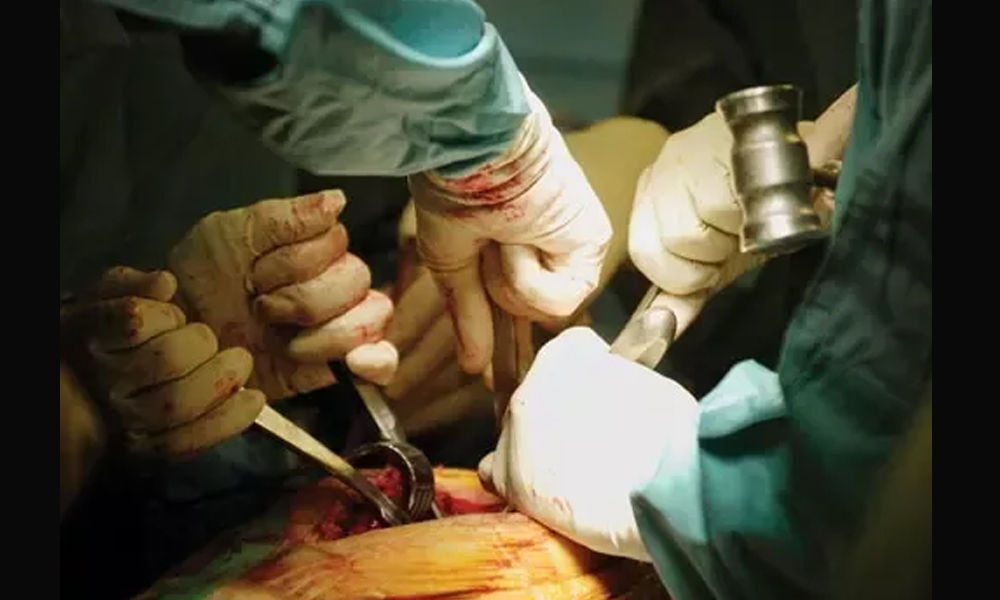Hopeful fight by an intrepid patient in Delhi

A 45-year-old woman from Delhi underwent a record third kidney transplant at a hospital here, proving true the adage ‘No matter how hard life is, don't lose hope’.
New Delhi: A 45-year-old woman from Delhi underwent a record third kidney transplant at a hospital here, proving true the adage 'No matter how hard life is, don't lose hope'.
Ekta Kalra has undergone three kidney transplants since 2001, the latest being in November 2018. According to doctors performing multiple transplants in a patient, the task is very challenging as with every transplant, the surgery gets more and more dangerous as the potential for complications increases.
It was Kalra's third transplant and the patient was much older, making the potential for complications far more, Sandeep Guleria, senior consultant, General Surgery, GI Surgery and transplantation at Indraprastha Apollo Hospitals, said.
In the case of Kalra, it was her husband who donated his kidney to save her life this time. Even though they were ABO incompatible, which means that their blood group did not match, the doctors took the challenge and performed the highly complicated transplant successfully.
A routine check-up in 1996 had revealed that Kalra's kidneys were shrinking. She was 23 then and had just got married. She was diagnosed with Glomerulonephritis, a type of disease in which the part of kidney which filters blood (called glomeruli) becomes damaged.
Since then, she has been battling with the disease. Initially, she explored various Ayurvedic treatments to treat her condition, but there was no relief and the creatinine levels in her blood continued to rise.
In December 2000, she had to start regular dialysis as her kidneys were no longer functioning properly. Kalra underwent her first kidney transplant in 2001 where her elder sister Anshoo Walia donated her kidney.
For more than a decade, the donated kidney served Kalra well, but the life of a donated organ is limited, Guleria said. By 2014, she again started facing kidney problems.
"By the time we found out that her first kidney was failing, it was too late to start her on dialysis. Her health was deteriorating fast, so we opted for a pre-emptive transplant.
This time, her other sister, Ritu Pahwa, donated a kidney," Guleria said. Few days after her second transplant, while she was still in ICU, she started complaining of severe stomach pain.
It was found that she had gangrene of intestine for which we had to do an immediate major abdominal surgery to save her life. "This was while she was still recovering from her second kidney transplant and it made her quite weak," he said.
Unfortunately, the second kidney was functional only for about four years after which it started failing. It was a case of acute antibody rejection of the transplanted organ, in which Kalra's own immune system started attacking the kidney, Guleria said.
"There were only two viable options for her at that time - either live on dialysis for the rest of her life or undergo another kidney transplant. Kalra chose the latter and this time her husband, Tarun came forward to donate his kidney.
We counselled the family about the various risks involved with this surgery, after which they gave us the consent to go ahead. Their blood groups did not match so to overcome the ABO incompatibility, we did numerous plasma exchanges.
The first two transplants took about three hours, but the third transplant took five-and-a-half hours, since the third operation was technically more difficult," he said. Guleria said, "Her body is responding well to the new kidney and we hope that this time it will last for the rest of her life.
Surviving three kidney transplants takes an incredible amount of strength, endurance and faith."
She was under observation for the last four months. "For a layman, two kidney transplants is rare. But the doctor explained that kidney transplant is possible even for the third time and one can lead a normal life after that.
Since he had already performed the kidney transplants twice on me before, I had full faith in him. Even after the third transplant, the precautions I have to take are the same as before.
The food I eat has to be hygienic and freshly prepared. Eating outside should be avoided, and it is essential to have medicine on time," she added.
















